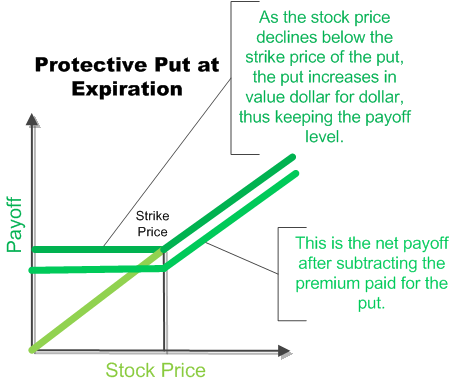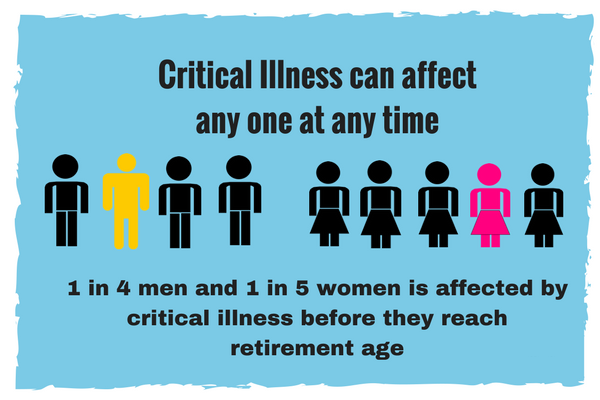Lets talk about anchoring bias and the role it plays on investor psychology
Contents
Carefully listen and comprehend what your counterpart is saying. It will help you decide what to say next and align your thoughts with your counterpart’s. Additionally, it will help to reach a final decision quickly. You can also openly acknowledge any difficulty in comprehending what your counterpart said. Therefore, it is one of the most important negotiation skills a marketer should possess. In one of the sections of this article, we have enlisted top negotiation skills that will help you shape a successful career in marketing.

It matters a great deal, however, which beliefs change. One would like to think that it should always be the belief that was shown to be mistaken. There are many ways to adjust a belief set, some rational and some not. To say that facts are less important than feelings in shaping our beliefs about empirical matters seems new, at least in American politics. Ever wondered why every upgrade in an iPhone as radical as it maybe has similar motor controls in its hardware?.
Habits of Highly Effective Traders
The easiest way to overcome the anchoring bias is to track one’s behaviour and identify the anchors that you are normally prone to be dragged down by. Objectivity and a practical approach to investing can go a long way in helping you to be away from anchors that influence your investment pattern and thus affect your portfolio returns negatively. By means of practice and over a period of time, one might get better at avoiding this investment bias. Whenever you are negotiating, there are high chances that you will fall into the trap of developing an anchoring bias.
Please note that by submitting the above mentioned details, you are authorizing us to Call/SMS you even though you may be registered under DND. When it comes to making sound decisions, there are two ways to go about them. The first one is to gather all the related information, deeply analyze the facts, calculate the consequences of the optional decisions in hand, and make a final call about what to do. The other is to take a tried and tested shortcut, make a broad guess and just go ahead with it. /2 Anchoring bias Over-reliance on the 1st piece of information you have. Recency bias is a cognitive error that tricks you into believing that what has happened recently will continue to happen again.

For one, the mere fear of a loss could prevent a trader from taking a position or could cause him to hesitate when taking a position. If fear of loss prevented a trader from taking a position but then the trade worked out very well, the trader https://1investing.in/ would regret why he or she did not take the position. If fear of loss caused a trader to hesitate when taking a position, then even a small unfavourable price move can reinstate the trader’s loss aversion worries and cause him or her to panic.
Let’s talk about anchoring bias and the role it plays on investor psychology.
Your budget was 2 lakh rupees, but because you were getting a 20% discount on that anchor price you got carried away and you bought this expensive sofa. I was just trying to make a very important point is that there are things in life that we don’t know how to price. For example, I know that a decent smartphone would cost somewhere around 10,000 to 30,000 rupees, depending on the model. I’m not going to pay two lakh rupees for a normal Samsung phone. Anchoring is a conduct bias in which the use of a psychological benchmark carries a disproportionately high weight in the decision-making process of a market participant.
To begin with, certain determinants may hamper the understanding of existing risks, preventing us from looking at the situation from different angles. Heuristics is a part of one of the three major risk perception theories- Psychology Approaches. It is defined as specific problem-solving techniques or learned methods that have the potential to overpower logical analysis and pragmatic aspects. Despite the impact they anchoring bias meaning have on our decision-making, we must be aware of the heuristics to know the direction we’re heading in or could head in if we were to sideline these. These negotiation skills will help beginner-level marketing professionals complete a negotiation process without a hiccup. However, if you are already in the field and feel the need to hone your negotiation skills, mentioned below are some ways in which you can do it.
- (AA has 80% chance of winning in this case) You invest $10k into a shitcoin that is now worth $100k.
- None of us are completely immune to heuristics and prejudices – and this is the very reason we need to be aware of it.
- The following list shows the common types of Cognitive Bias seen in people which have a significant influence on the mind, feelings and behavior.
- For debt funds, look for the credit rating exposure of the debt instruments held along with past performance.
- Therefore, taking training lessons is not enough; work on your negotiation skills by setting up mock discussions with friends or managers.
If you were then asked to guess an absolute population value for Canada, your estimate would probably fall somewhere near 30 million. This is because you are likely subject to anchoring from your previous response. Numerous studies demonstrate that, regardless of how the initial anchors were chosen, people tend to adjust their anchors insufficiently and produce end approximations that are, consequently, biased.
File ITR, invest & save upto ₹46,800 in taxes on the go
Herd mentality is the phenomenon of individuals deciding to follow others and imitating group behaviors rather than deciding independently and automatically on the basis of their own, private information. Professional managers will follow the herd if they are concerned about how others will assess their ability to make sound judgments. Herd behavior can arise as a consequence of rational attempts by managers to enhance their reputations as decision makers.
Often characterised by the phrase “I knew it all along”, the tendency to accurately “predict” previous events which were unknown at the time. Also known as Expectation Bias, the tendency for an experimenter to inflate or exaggerate the evidence that aligns with the expected outcome and to downgrade the evidence that conflicts. The underestimation of emotions affecting a decision in the self or others. The tendency to over represent the difference between two options when evaluating them together rather than evaluating the on their own individual merits. The tendency to underestimate the price of something when it is represented in smaller units . The tendency to change one’s choice to another existing choice when presented with a new option that is similar to a previous unselected choice, despite it not effecting the accuracy of that choice.

This bias often leads us to make emotionally charged choices, decisions that could erode our earning potential by tempting us to hold a stock for too long or pull out too soon. This ‘power-of-the-crowd’ mentality influences our investment decisions too. For example, we often make our investment decisions based on what the people around us are doing.
Intermarket Analysis and Sector Rotation
To counter this bias, investors need to adopt an outsider’s view when evaluating investment ideas because the insider’s view is usually overly optimistic. Ostrich effect is a cognitive bias that causes people to avoid information they deem as potentially unpleasant. This behaviour is seen when we have already made up our minds about something, or when we only want to consider the positive aspects of an outcome. For example, project managers are trained to provide estimations based on historical data, past experiences etc. and thus arrive at the first psychological benchmark for project completion. However, in reality, when the team provides an estimate that may either be above or below the first psychological benchmark, most project managers tend to make a mistake at this point. Yet post-truth did not arise in the 1950s or even the 1960s.
Let us discuss one such bias— anchoring— and find out the ways and means to avoid the same while investing. Investors overweigh the recent events or headlines occurring in the investment world, which impact their investment or trading decisions. For instance, they assume that a bearish trend is likely to continue in instances like a market crash. However, it is for sure that the market will bounce back, or the drop-down of the stocks might be the correction to go further up in the coming days.
All of us, at least once in our lifetime, have put money into something just because someone from the family did it or because a friend has told us that it is a good investment opportunity. For instance, during the last market crash, a lot of people acted and redeemed when they didn’t need the money. It has happened in the past and would happen in the future too. As much as we think we are doing the right thing as per the demand of the situation, the act might turn out to be completely irrational. This is simply because such actions are governed by our cognitive biases and not logic. “Why Are We All So Stupid?” explores the cognitive biases that lead us to make irrational decisions.
What are the Types of Cognitive Bias and How to Overcome it?
For example, people remember losses forever, but they don’t remember the years they made 30 percent, just years they lost 20 percent. They think that they may experience losses again, and want to avoid the feeling of regret. We can overcome planning bias by paying attention to the steps required to complete the project and not just the outcome.
Many cognitive biases revolve around these attention related issues. Negotiation skills training alone cannot help marketing professionals become excellent negotiators. However, a strong urge and proactive approach surely can.

























































